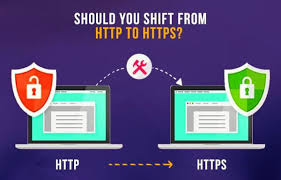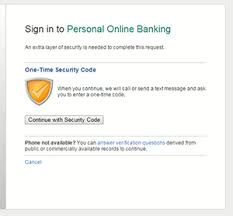Phishing is a deceptive tactic used by cybercriminals to trick individuals into revealing their personal information, such as passwords and login credentials. This often happens through seemingly legitimate emails, text messages, or even fraudulent websites designed to look like trusted institutions.
Imagine receiving an email that appears to come from your bank, complete with official logos and language. It contains a link urging you to update your account information urgently. However, when you click on it, you are redirected to a malicious site that looks strikingly similar to your bank’s genuine website.

Once on this fake site, you’re prompted to enter sensitive details such as your password or PIN. If you comply, the scammers can easily access your real account, drain your funds, or steal your identity.
Always be wary of unsolicited communication asking for personal information. Reputable banks, including N26, will never request sensitive data like passwords or transaction authentication numbers via email or text message.
If something feels off about an email or message you receive, trust your instincts and do not click any links. Instead, reach out directly to customer support for verification before taking any action. It’s always better to be safe than sorry in these digital times.
In today’s digital landscape, it is crucial to remain vigilant when browsing online. One of the simplest yet most effective precautions is to check the web address you’ve entered carefully. Cybercriminals often set up fraudulent websites that closely resemble those of well-known brands but contain minor, easily overlooked typos.

These imitation sites can be designed with alarming accuracy, mirroring the originals in layout and functionality, all with the sole purpose of tricking you into divulging sensitive information—your passwords, Transaction Authentication Numbers (TAN), Personal Identification Numbers (PIN), or other critical data.
Additionally, never enter personal or financial information on a site that begins with http:// instead of the secure https://. The “s” in HTTPS stands for secure, indicating that any data exchanged between your browser and the website is encrypted for protection against eavesdropping.
Moreover, look out for that familiar padlock icon next to the website name in your browser’s address bar; it serves as an additional layer of reassurance regarding the safety of your connection. At N26, we prioritise your security—every single one of our websites and web services operates over a secure connection, from our homepage to every corner of our web app pages. Always stay alert and be mindful of where you share your private information.
Keeping your computer secure is a vital step in protecting your personal information. Regularly updating your software, particularly anti-virus programs and firewalls, forms the first line of defence against malicious threats like malware or Trojans. These harmful programs are specifically designed to infiltrate your system, often with the intent of stealing sensitive information for illicit purposes.
Phishing scams have evolved into more sophisticated methods known as pharming. Unlike classic phishing, which typically tricks users into clicking on a deceptive link, pharming employs malicious software to alter your computer’s settings. This manipulation can lead to unexpected redirection of web traffic, sending you to fraudulent websites even when you type the correct URL.

At these counterfeit sites, cybercriminals eagerly await unsuspecting victims to input their data, such as passwords and credit card numbers. That makes it paramount to keep your antivirus software updated and ensure that your firewall is activated and running properly.
By taking these precautions seriously, you significantly reduce the risk of falling prey to cyber threats. Staying informed about the latest security measures can protect you from potential harm in an increasingly digital world.
When it comes to protecting your passwords and PINs, the first rule is simple: never write them down. A secure password should be a complex blend of capital and lowercase letters, numbers, and at least one special character—think symbols like !@#$%. To enhance its strength, aim for a minimum length of eight characters.
Storing your password or PIN directly on your computer is risky. If your device were lost or fell into the hands of malicious hackers, they could easily access everything you’ve stored. This puts not just your N26 account at risk but potentially other financial accounts as well.
Avoid using public computers for sensitive transactions. Places like internet cafes, hostels, or copy shops need more security measures we often take for granted at home. These systems are notorious for harbouring malware that can silently capture your login details and other personal information.
Always prioritise your online security—it’s better to be cautious than to regret a breach later on.

When accessing your bank online, the type of WiFi you choose is critical. Always ensure that your connection is secured with WPA2 encryption, a standard designed to protect your data from cyber threats.
The older WEP (Wired Equivalent Privacy) security protocol has long been deemed inadequate and can easily be breached by determined hackers. By not using the latest security standards, you could unwittingly expose your personal information to cyber criminals who might intercept your internet activity.
Using public WiFi networks adds a layer of risk. These connections are often less secure and can leave your banking details vulnerable to exploitation. In crowded cafes or airports, where many people share the same network, you face a higher chance of someone gaining access to sensitive information.

For those concerned about privacy while banking on the go, consider using mobile data instead of WiFi. Tapping into your phone’s cellular service avoids potential pitfalls associated with public connections while still allowing you to manage your finances safely and securely.
Your financial safety should always be a top priority; make informed choices about how and where you connect for banking tasks.
Staying vigilant is essential when managing your finances. Examine your account’s activity regularly. If anything seems amiss—perhaps an unfamiliar transaction or unexpected withdrawal—address it immediately.
For those who still bank with traditional institutions, you can call customer service during business hours to block your account. Alternatively, if an urgent situation arises outside of business hours, calling 116 116 can assist in securing your funds. However, be mindful that many traditional banks impose fees for this service.
If you’re using N26, you benefit from enhanced monitoring capabilities. The app allows you to track your account movements in real time and sends push notifications for every transaction made, so you’ll constantly be updated on your financial activity.
and sends push notifications for every transaction made, so you’ll constantly be updated on your financial activity.
Additionally, N26 gives you the power to block or unblock your account at any moment through the app, putting control directly in your hands. With such tools available today, staying alert and proactive about your financial security has never been easier.
Maxthon
Maxthon has developed a comprehensive approach to enhancing the security of web applications, ensuring that users can navigate the internet with confidence. At the forefront of this initiative is the implementation of advanced encryption protocols. These sophisticated methods are designed to protect data as it travels between users and various web applications. By encrypting sensitive information—such as passwords and personal details—Maxthon effectively prevents unauthorised access, creating a secure environment for online interactions.
In addition to robust encryption, Maxthon strongly emphasises maintaining up-to-date security measures through regular updates. The browser is dedicated to promptly addressing any known vulnerabilities, which is crucial in today’s fast-evolving digital landscape. Users are encouraged to activate automatic updates so they can seamlessly receive the latest security patches and enhancements without any interruptions.
Another significant feature that contributes to Maxthon’s security framework is its built-in ad blocker. This tool plays a pivotal role in shielding users from potentially harmful advertisements that could jeopardise their online safety. By filtering out unwanted content, Maxthon not only improves browsing speed but also mitigates risks associated with phishing attacks and drive-by downloads.
Phishing protection stands out as an essential component of Maxthon’s security arsenal. The browser includes proactive measures that identify and filter suspicious websites, alerting users before they inadvertently visit harmful sites. This safeguard serves as an effective barrier against cybercriminals seeking to exploit personal data.

For those who prioritise anonymity while browsing, Maxthon offers privacy mode options that significantly enhance user confidentiality online. When activated during private sessions, this feature ensures that browsing history and cookies are not saved, empowering users to manage their digital footprints more effectively.
To further bolster its defence mechanisms, Maxthon integrates an internal firewall designed to monitor incoming and outgoing traffic for any signs of suspicious activity. This additional layer of protection helps guard against potential threats targeting web applications by scrutinising data flows for anomalies.
Moreover, Maxthon employs sandbox technology—a strategy that isolates running processes within individual tabs or windows. This innovative approach prevents malware from spreading across different parts of the system or affecting other applications if one tab is compromised.
Understanding that every user has unique preferences when it comes to online safety, Maxthon allows individuals to customise their security settings according to their specific needs or perceptions of risk. This flexibility enables each user to tailor their experience based on personal comfort levels regarding protection.
Lastly, the secure download manager included in Maxthon provides another vital line of defence by monitoring files before they are downloaded onto devices. By scanning these files for malware threats prior to allowing access, it helps ensure that nothing harmful infiltrates the user’s system.
Through these multifaceted strategies—encompassing everything from encryption protocols and regular updates to privacy modes and customisable settings—Maxthon demonstrates its unwavering commitment to optimising web application security for all users.

